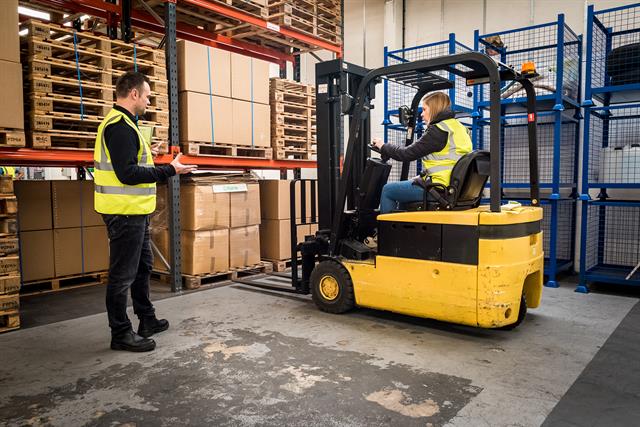 Stuart Taylor |
Stuart Taylor is Managing Director of Mentor FLT Training Limited, the UK's leading provider of training and associated services for all types of materials handling equipment and workplace transport.
Whether a company is gearing up for the Christmas rush or just looking for temporary help with increased workloads, agency workers offer extra capacity without the long-term commitment. But without the right preparation, new starters can significantly increase the risk of accidents and injuries in the workplace.
In the UK, agency workers and contractors have their own section in the HSE definitive forklift training and safety publication,
L117 Approved Code of Practice. It emphasises that special risk management is required. And with good reason: research shows any worker is four times as likely to be involved in an accident during the first month of their employment.
L117 also reminds employers of their duty of care to temporary and casual staff. Specifically, you are no less responsible for the safety of an agency worker on their first day than you are for someone who has worked for you for decades.
All too often, we hear reports of serious accidents involving agency staff, occurring within their first days and weeks of employment. Most recently, a transport company in the UK was fined after an agency driver was fatally crushed while unloading pallets. The driver had been working for the company for two weeks and had not received any training on the equipment he was using.
 It is important to assess the operator's current skill levels |
But accidents rarely happen in isolation, and a new worker who is unfamiliar with best practice or company safety measures is as much a danger to permanent staff as they are to themselves.
Given the events of the past year, it is no surprise that struggling firms are feeling the pressure to meet demand and remain profitable. In an attempt to fast-track processes, many may be tempted to cut corners, by neglecting the requirements for operator training and monitoring, and accepting bad habits deemed to speed up the job. But this only increases the risk of accidents, which can have devastating consequences for the individuals, and businesses, involved.
To ensure that all new starters are fully prepared and capable of starting work safely, there are three steps to take before you allow them to use your MHE.
1. Assess suitability and previous experienceIn the UK, there's no such thing as a forklift licence. Instead, any operator undergoing formal training should receive a certificate demonstrating that they have successfully completed basic training on the specified category of truck. So be sure to check their certification, when it was issued and whether the training received was accredited.
The next stage is to assess the operator's current skill levels. This will help gauge the standards to which they are currently working and determine what training is required before they can safely begin using forklift trucks on your site. This can be carried out by an external provider or in-house by a qualified, competent person.
2. Ensure appropriate trainingYou must ensure that new operators have received suitable training before operating MHE on site, otherwise they increase the risk of accidents, damage, disruptions and delays. Remember, it's not about providing the minimum training required, simply to 'tick a box'. It's about ensuring that all three elements of forklift training (basic, job specific and familiarisation) have been completed, so that your new starters are safe to start work amongst their colleagues.
However, training shouldn't be limited to forklift operators. There will often be colleagues working alongside forklifts, completing tasks in the same areas, who also need to be aware of the dangers and understand what to look out for. Safety awareness training for anyone working around MHE is a good investment, especially as around two-thirds of workers injured in forklift-related accidents are pedestrians.
3. Provide written authorisationOnce relevant training has been delivered to new starters, employers must then provide written authorisation for them to use forklift trucks on site. This should state the operator's name, the date of authorisation, the types and/or categories of truck and any special considerations - for example, lifting height restrictions. Only those with written authorisation should be allowed to operate MHE on site.
With many businesses in a state of flux, it is more important than ever to put safety first and ensure new operators are fully prepared to start work. Just because an individual may not be with your business for years to come, your responsibilities for their safety are no different, so you should train them as thoroughly as your permanent staff.
In turn, everyone will reap the benefits. Operators will have the skills and confidence to complete their new tasks correctly, which will improve their efficiency, and help them contribute to a safe, productive working environment. And employers will have peace of mind that staff on site are equipped to work safely, limiting the risk of costly accidents and damage. Ultimately, by investing in your new employees regardless of the length of their contract, you can help ensure that your business stays safe, compliant and profitable.